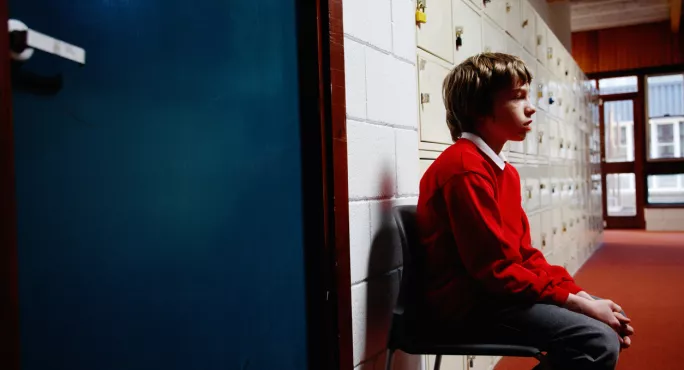- Home
- Fears of a rise in exclusions due to coronavirus rules
Fears of a rise in exclusions due to coronavirus rules

Pupils face an increased risk of being excluded from school following the coronavirus pandemic, a report from the University of Oxford suggests.
Researchers at the university’s department of education found that schools may become “less tolerant” of pupils struggling to follow instructions as they implement public health guidance.
More strict behaviour policies could be discriminatory towards pupils whose needs make it hard for them to follow social distancing, according to School Exclusion Risks after Covid-19.
Coronavirus: ‘Trauma gap’ could overwhelm schools and PRUs
Behaviour: How coronavirus could change behaviour management
Opinion: ‘Lockdown has exposed the plight of the disadvantaged’
The study is based on conversations with 70 professionals from health, education, criminal justice, local authorities and charity organisations, and finds that schools must be “supportive” rather than “reactive” in their approach to pupils as they return to school following the outbreak.
It describes government changes to school exclusion policies and behavioural policies as being of “particular concern” with a shift in terminology from schools having to make “reasonable adjustments” to support children to “reasonable endeavours”.
Could coronavirus lead to more school exclusions?
The report says these changes would particularly impact on pupils waiting for an education, care and health plan, adding: “With schools being encouraged to update their behaviour policies to include new rules to ensure the health and safety of staff and students and abide by public health advice, there are concerns that schools will become far less tolerant of students who refuse to follow instructions and comply with expectations, which may result in an increase of both formal and informal exclusions”.
“Stricter policies may also discriminate or unfairly increase the risk of exclusion for certain young people - for example, children who have conditions which make it hard for them to obey social distancing or working in ‘bubbles’,” the report says.
The study also identifies a number of ways in which pupils may be at increased risk of being excluded and missing out on education because of Covid-19.
One group of pupils who could be at higher risk include the “doubly excluded” - pupils who were permanently excluded before lockdown and have not had access to interim provision.
“There is a risk that without an alternative provision or school place, these young people will completely disengage,” the report says.
It adds that some schools have been asked to rescind permanent exclusions and opt for a managed move with no return instead, with the excluding school continuing to provide pupils with work and safeguarding checks before they can take up their place at their new school.
Another group which raises concerns is described as the “happier at home” - pupils who for various reasons find school life difficult, and are at risk of becoming “non-returners” or self-excluding. The report recommends using home-school link workers to help this group to re-engage with education.
The report also highlights challenges for pupils who may have previously thrived at school but have become isolated and stressed during the lockdown, and also for pupils who have received variable levels of home learning to complete or support from their schools.
It suggests that there needs to be a “more thoughtful” approach to data protection to ensure that pupils at risk can be identified and supported.
“Regulations need to allow for agile and flexible services that meet the needs of those most at risk. This has implications for a more thoughtful approach to risk management and GDPR, in order that we can ensure that children’s entitlements are well met by provision,” it says.
Ian Thompson, associate professor of education at the University of Oxford, said, ‘We know the impact of Covid-19 on schools is substantial for practitioners and students. The social and emotional disruption caused by the pandemic and the subsequent school closures is highly likely to have increased or exacerbated student anxiety and other mental health issues.
“There is also a concern with school connectedness for vulnerable students, whose patterns of school attendance have been disrupted. These concerns raise issues around transitions back to school settings.’
Professor Harry Daniels, a fellow professor of education at Oxford, said: “All children will have experienced some adverse effects from the Covid-19 pandemic, but for some these will be traumatic and long-lasting and this may impact negatively on whether and how they return to school, and the likelihood of formal, informal and self-exclusion.
“Those adversely affected by Covid-19 are extremely diverse. This suggests there is a need to think beyond conventional and recognised categories of vulnerability.”
Keep reading for just £1 per month
You've reached your limit of free articles this month. Subscribe for £1 per month for three months and get:
- Unlimited access to all Tes magazine content
- Exclusive subscriber-only stories
- Award-winning email newsletters



